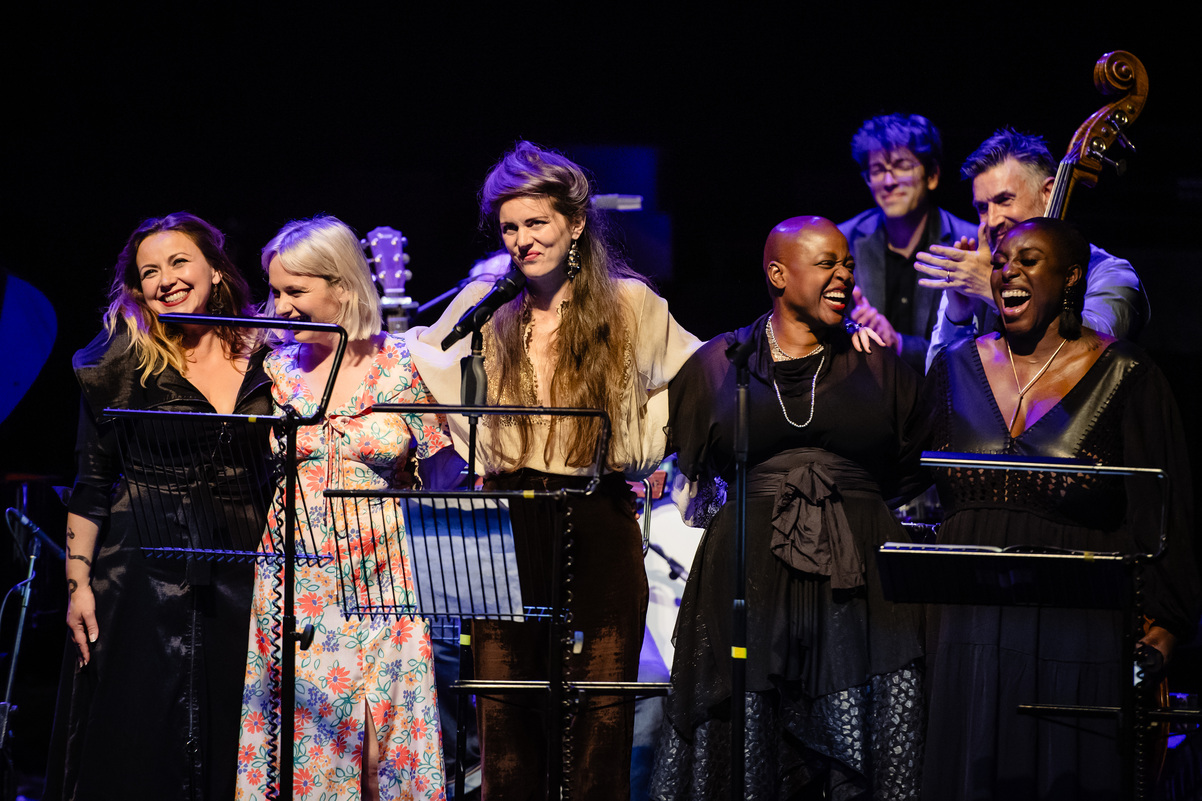It was timely and fitting to hold a tribute to Joni Mitchell at Llais 23, the Festival of Voice, taking place at the beautiful Wales Millennium Centre in Cardiff. Joni remains one of the most talented and unique artists of the past few decades, and her vocals and extraordinary talent for writing poignant and poetic lyrics puts her in a class of her own.
The concert focuses on Both Sides Now and Travelogue, the artist’s fully orchestrated albums. Both Sides Now saw Joni Mitchell sing a selection of classic songs, mainly from the 1930s and 40s, together with two of her own compositions. The collection forms the narrative of a love story which starts with love at first sight and ends with heartbreak.
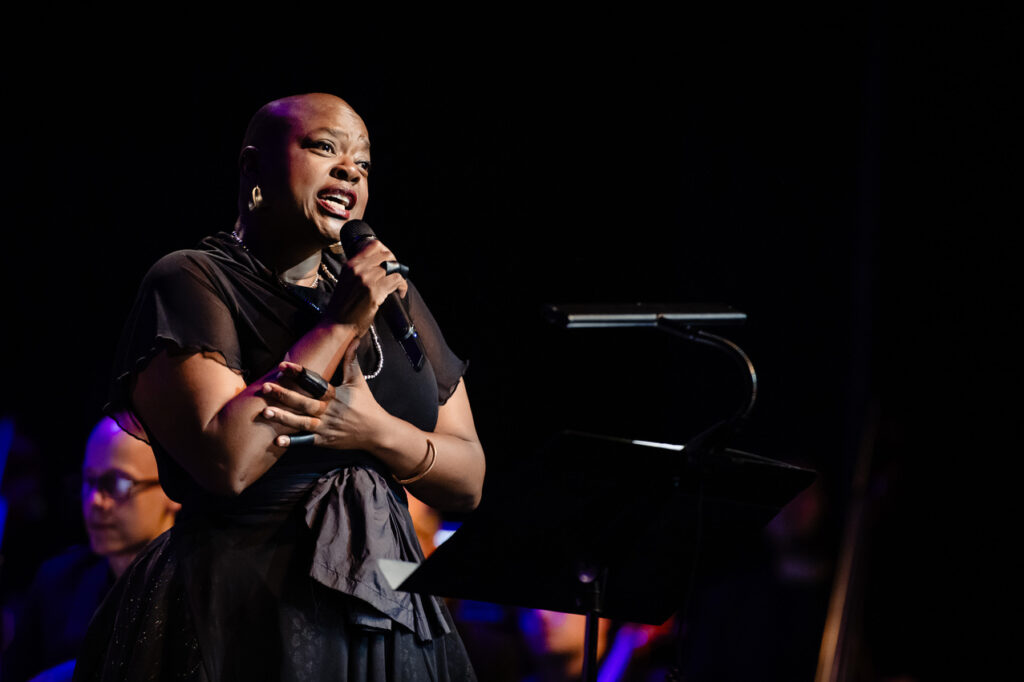
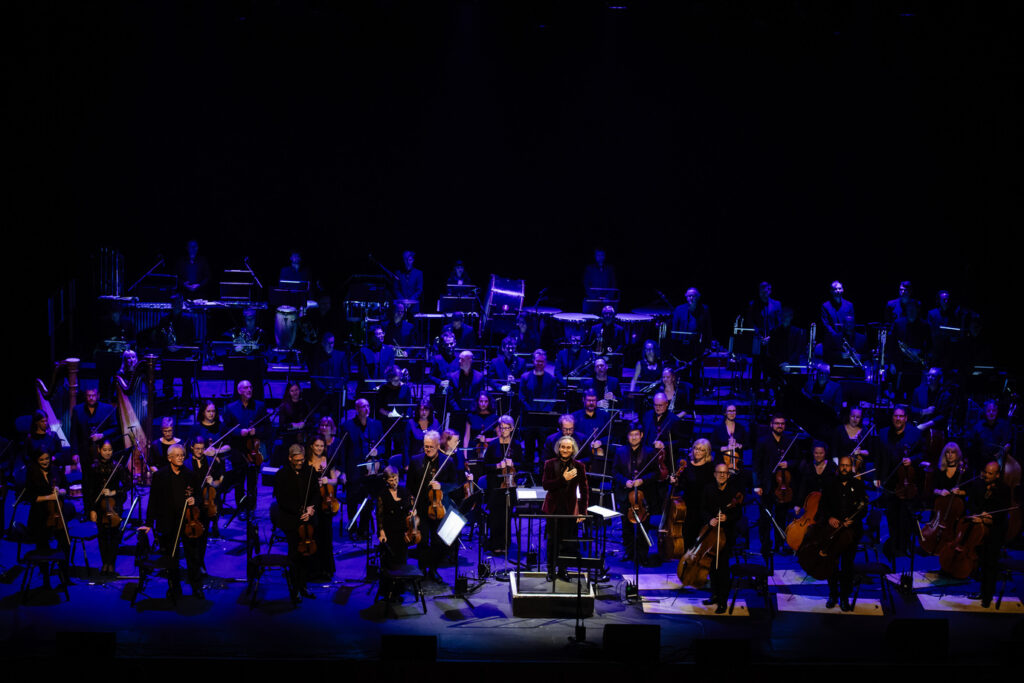
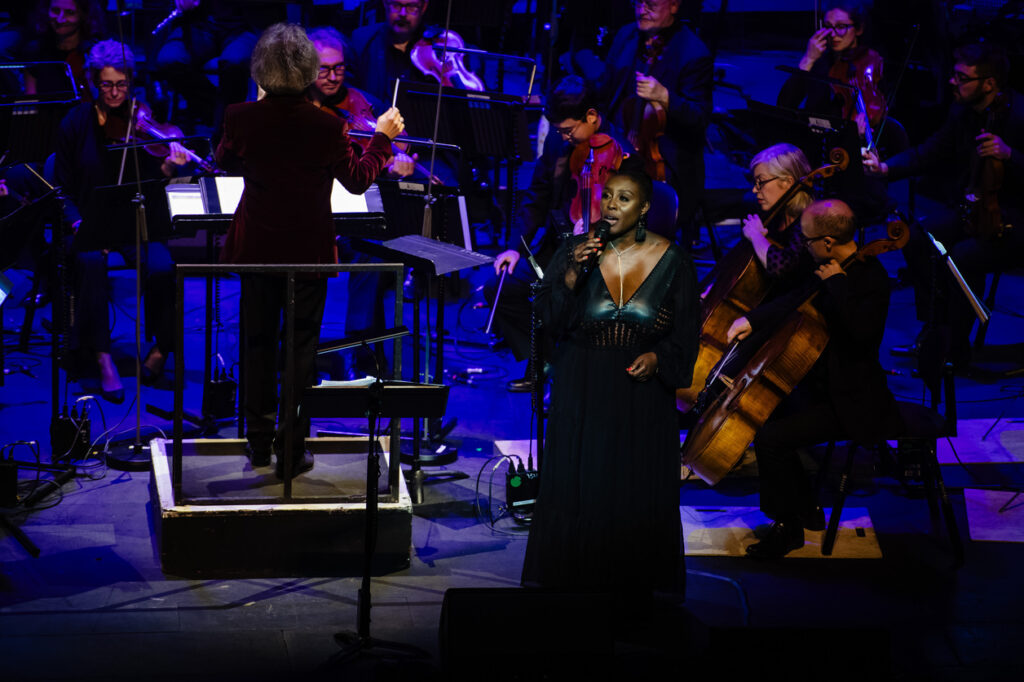
Performing were five contemporary vocalists: Charlotte Church, Laura Mvula, ESKA, Georgia Ruth and Olivia Chaney, accompanied by the BBC National Orchestra of Wales with Vince Mendoza’s orchestral arrangements from the album, and conducted by Anthony Gabriele.
Charlotte Church opened the evening and immediately captivated the audience with her rendition of You’re My Thrill, conveying the heady emotions of instant attraction with clarity and passion. All five artists brought their own style and unique interpretation of the material to the stage. The mantle of the final song, Both Sides Now, fell to ESKA; her reflective, mature and measured vocal approach set against the exquisite orchestration of Vince Mendoza’s vibrato string arrangement helped the song to hover in the air, alive with tension.
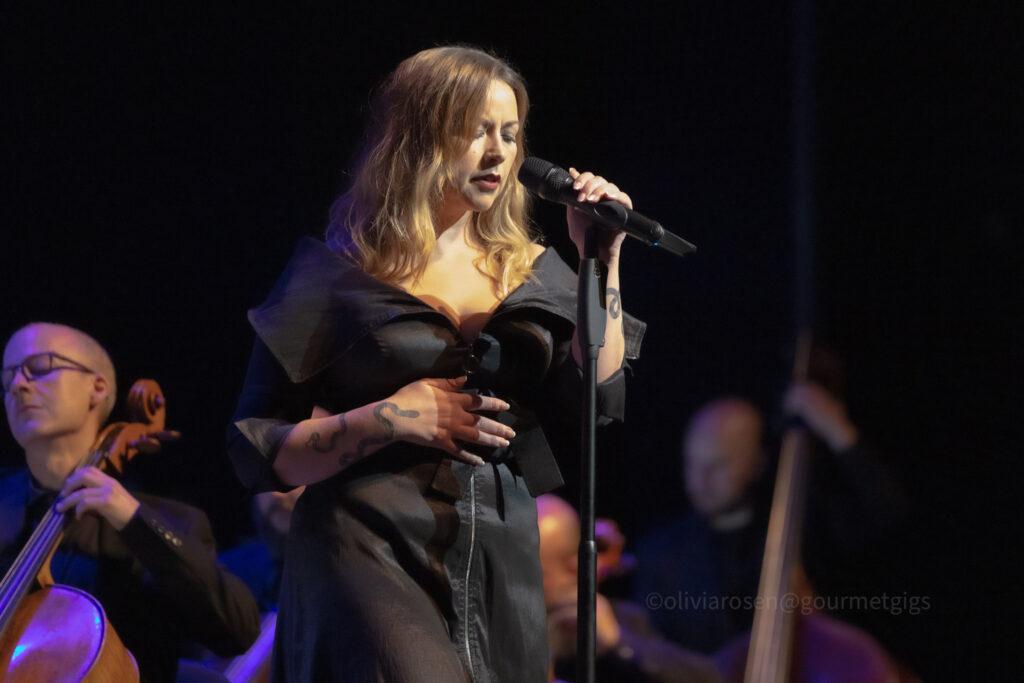
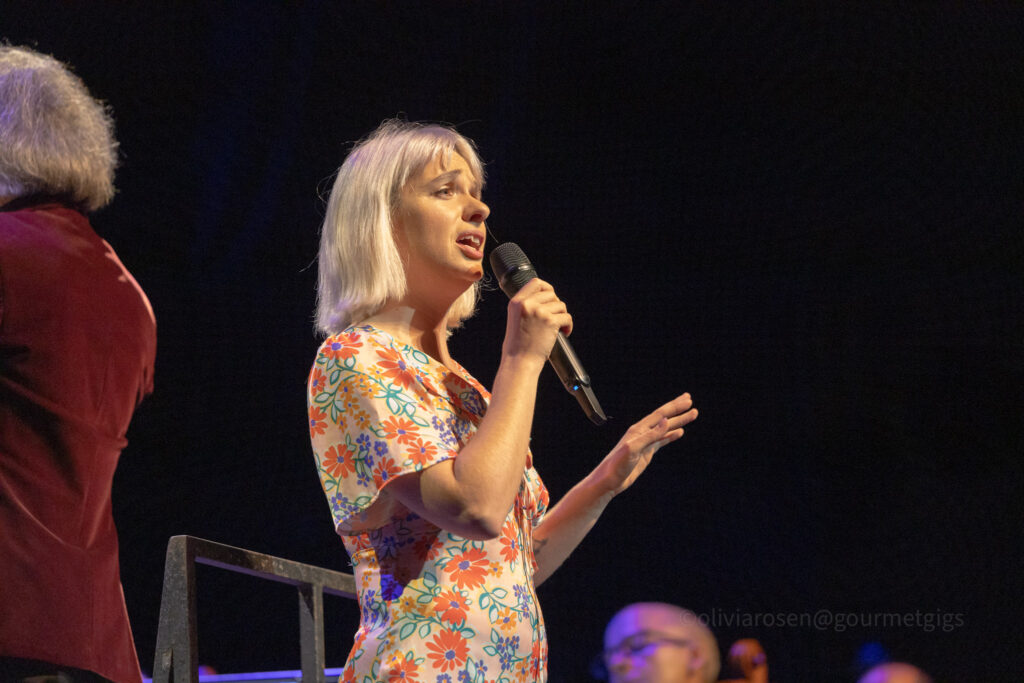
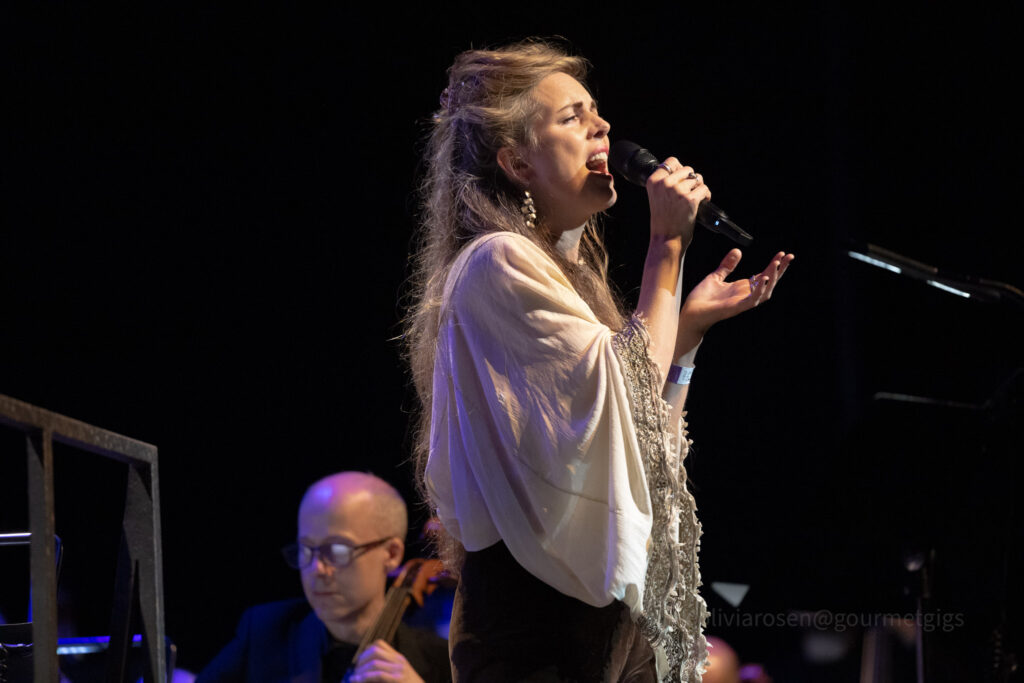
With the formality of the first section over, things became a little more relaxed for a selection of songs from Travelogue. Church’s version of Woodstock was one of the highlights of the evening; beautifully paced, loaded with drama, and with the orchestration designed to enhance its mystical quality. Another triumph was ESKA’s Hejira. Recreating the original Mitchell-Jaco Pastorius interplay as an orchestra-backed version cannot have been easy but this did work in part to ESKA’s steady and hypnotic vocals.
The informality of the third and final segment allowed the artists more freedom of expression. The orchestra was replaced by a band who formed a small cluster on the stage with the five vocalists, bringing a feeling of intimacy to the show. Olivia Chaney both played the piano and covered the vocals on Blue, this was a sensitive performance that recalled Mitchell’s 1971 album version. And popular local singer and broadcaster Georgia Ruth also referenced Mitchell’s early period with a joyful rendition of Morning Morgantown.
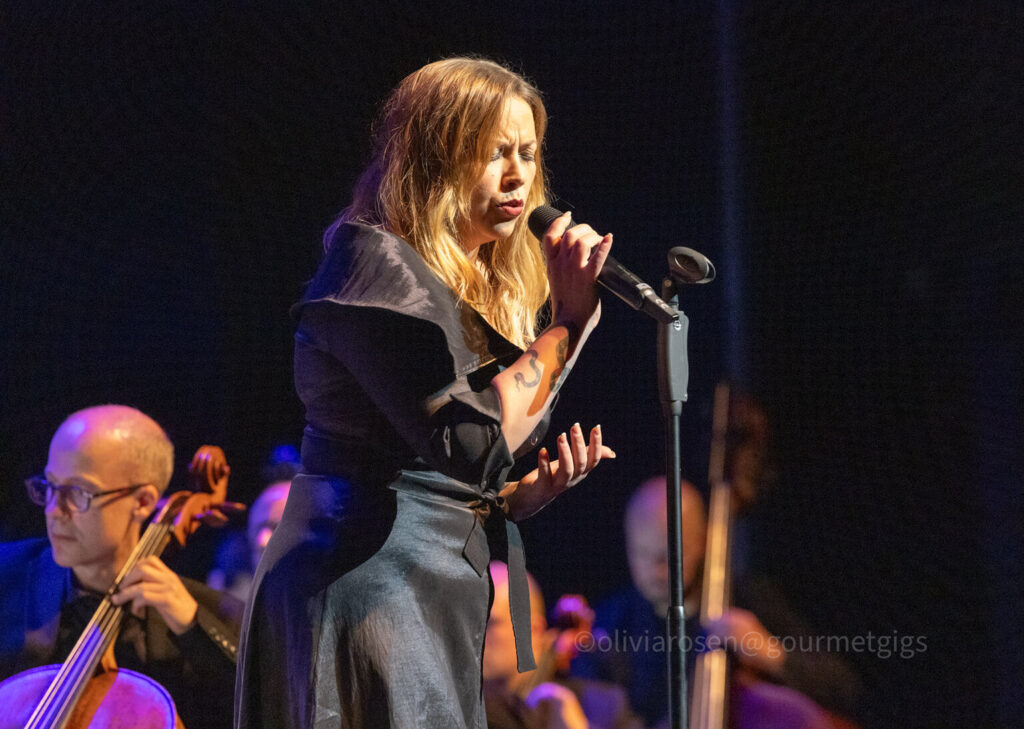
For the penultimate song, Laura Mvula perfectly recreated the jazz-inflected moody sensuousness of Hissing of Summer Lawns, her warm, smoky vocals bringing a hypnotic quality to the track. And for those who were secretly hoping all five would sing together because, yes, we’d like to hear those five special voices in harmony, hopes were realised when Carey drew the show to close.
LLAIS 23 Cardiff’s International Arts Festival
Main photo, Laura Mvula, ESKA, BBC National Orchestra ©Polly Thomas
Olivia Chaney, Georgia Ruth, Charlotte Church ©Olivia Rosen



